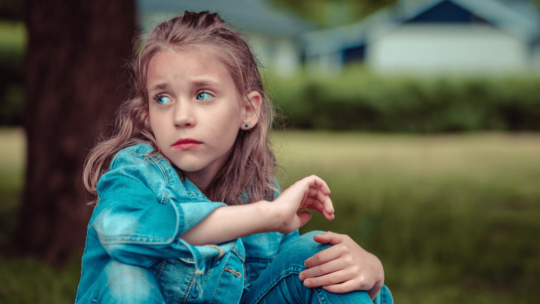Two years post-pandemic, many students across the country are still feeling the effects of COVID-19. Concerns over lost-instruction time is just the tip of the iceberg as many students struggle with mental health concerns, including increased anxiety and misbehavior at school. Signs of increased anxiety in children and adolescents could present as physical symptoms like an upset stomach or as changes in behavior, like inattention and restlessness. As educators, we’re likely reading this and asking ourselves, “How can I help?”
Here are a few strategies and tips to help you prioritize your student’s mental health at school:
Check-in with your students – Focus on relationship-building in your classroom by checking in with your students on a daily basis. Morning meetings or regular emotional check-ins with your student can go a long way in helping you gauge the stress and anxiety levels of your learners. Try incorporating Everyday Speech’s Moji-Meter with your students to check-in on how they’re feeling today.
Provide direct instruction in SEL – One key to helping students manage or reduce anxiety is having the self-awareness to recognize their own emotions. A student has a greater chance of managing their worries and anxieties if they can:
a) Name the emotion they’re feeling
b) Use a strategy to manage this feeling.
When we teach students these types of self-awareness and emotional recognition skills we’re equipping them with skills that they can access and utilize their entire lives!
Our new SEL Curriculum provides a done-for-you approach to teaching General Ed SEL right away! Learn more here.
Use trauma-informed practices – Trauma-informed practices are all about meeting students where they are. To put this into practice, we should consider a student’s challenging life contexts. This includes sexual or physical abuse, addiction, or the incarceration of a family member. Trauma can greatly impact a student emotionally and academically.
Incorporate mindfulness in your classroom – Utilizing calming breathing techniques or movement breaks as forms of mindfulness is often helpful in reducing student stress. Aerobic exercise can serve as a distraction from a student’s overstimulated nervous system. Try one of our mindfulness videos.
Research tells us that mental health and academic achievement are linked. Chronic stress can change the chemical and physical structure of the brain. “You see deficits in your ability to regulate emotions in adaptive ways as a result of stress,” said Cara Wellman, a professor of neuroscience and psychology at Indiana University. This is big stuff! Which is why we as educators come in and try our best to support not just our students’ academic needs, but their emotional development and well-being as well.











